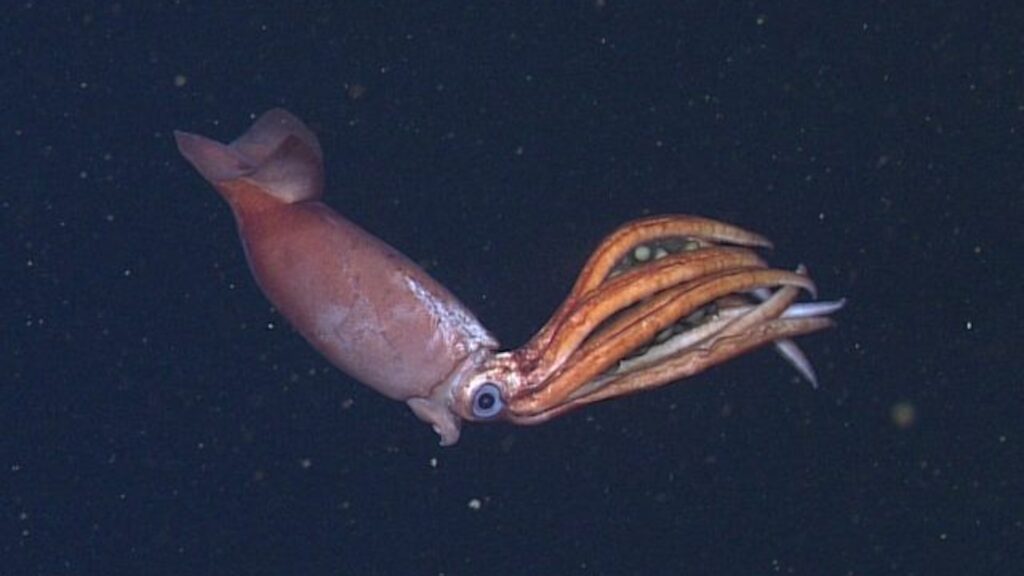Monterey Bay Aquarium Research Institute (MBARI) researchers in California believe they have discovered a new deep-sea squid species thanks to one cephalopod mother’s surprisingly large egg brood. Although first recorded roughly 2,566m (around 8,418 feet) deep by a remotely operated submersible robot named Doc Ricketts back in 2015, it wasn’t until recent footage review and detailed comparisons to similar squids that marine biologists realized what they saw nearly a decade ago was likely a new member of the Gonatidae family.
Many species of octopuses are known to brood their eggs until they hatch, but that isn’t the case for squids. Instead, the ocean dwellers usually deposit egg clusters on the seafloor or disperse them to drift along water columns until they hatch. But when a squid species does brood, it’s a fatal endeavor.
“Brooding takes a lot out of a mother squid. She won’t eat while carrying her eggs and ultimately dies after her eggs hatch,” Henk-Jan Hoving, head of the deep-sea biology working group at GEOMAR’s Helmholtz Centre for Ocean Research Kiel and study lead author, said in a June 11 statement. “But her sacrifice improves the chances that her offspring will survive. It’s just one of the many remarkable adaptations that may help cephalopods to survive in the deep sea.”
Most of these eggs are also incredibly small, with a Gonatus squid’s measuring just 6mm in diameter. The squid seen in the submersible video, however, oversaw eggs roughly double that size (about 0.5 inches). She also brooded far fewer than its potential relatives—around 30-40 eggs versus as many as 3,000 seen in other Gonatus squids.
Brooding patterns are even more impressive considering gestation can take as long as 52 months for some squids. Using previous data on squid development rates, MBARI researchers believe their potential new species could take somewhere between 1-4 years to gestate—longer than the lifespans of most shallow-water squids.
[Related: New squid alert! 100+ species discovered off the coast of New Zealand.]
Researchers believe a squid’s egg count is most likely determined by where it can be found in the ocean. Species that produce thousands of eggs are often seen in regions with limited food resources, many predators, or a combination of the two factors. Larger eggs in smaller quantities, in contrast, probably make more sense when animals are located in relatively stable deep-sea conditions like the one seen in 2015.
The potential of a new species discovery is a great reminder of just how much still is to learn about deep-sea squids. According to MBARI, only 17 instances of brooding squid have been observed by the organization’s ROVS over 37 years.
>>> Read full article>>>
Copyright for syndicated content belongs to the linked Source : Popular Science – https://www.popsci.com/environment/deep-sea-squid-eggs/
